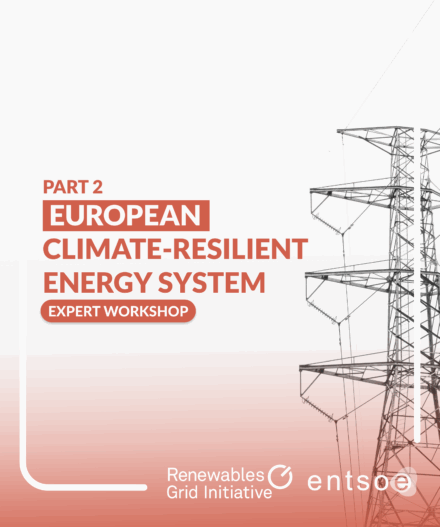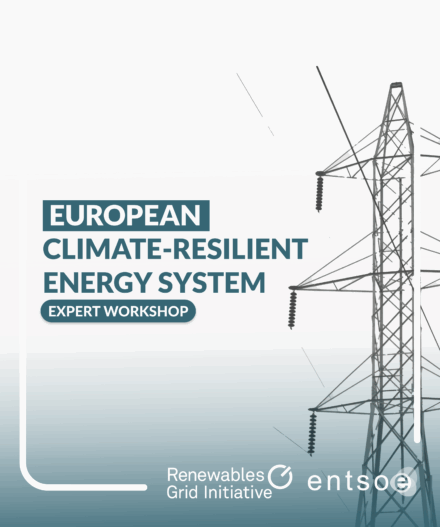Organised by: RGI and ENTSO-E
RGI and ENTSO-E’s joint workshop convened experts in Brussels to discuss how climate adaptation and resilience measures can be better integrated into the European grid planning process. The workshop discussions reflected on the concluding work on a new climate adaptation indicator within ENTSO-E’s Cost-Benefit Analysis (CBA) methodology, ahead of its planned application in ENTSO-E’s 2026 TYNDP update.
Over recent years, the consequences of climate change, including more frequent and intense extreme weather events, have become increasingly evident. To ensure that vital infrastructure can continue to function under these conditions, it is ever more important to integrate adaptation and resilience considerations into the way Europe plans and implements its energy system.
What is the CBA Framework?
For electricity networks, the Ten Year Network Development Plan (TYNDP) serves as a Europe wide framework that steers the long term development of the power system and supports a cost effective energy transition.
Within the TYNDP, the Cost-Benefit-Analysis (CBA) Methodology assesses the benefits associated with electricity transmission projects based on a set of social, environmental, and economic indicators. In the context of accelerating climate change, shifting weather patterns and more frequent extreme events such as heat waves, storms and floods, there is a need for a new quantitative indicator under the CBA Methodology to better evaluate climate adaptation and resilience measures for electricity grids.
Incorporating such climate resilience and adaptation measures into the TYNDP process and specifically with other indicators under the CBA Methodology would guarantee that the future grid infrastructure is prepared to address climate change impacts.
Workshop goals and outcomes
Following up on the successes of the previous workshops on the topic, ENTSO-E and RGI gathered for the third time experts from grid operators, regulators, policy makers, and civil society organisations. Discussions aimed at understanding how an indicator for climate resilience could be incorporated into the TYNDP’s CBA methodology.

In the first part of the workshop, ENTSO-E and RGI presented a framework for the new indicator, consisted of a methodology to calculate benefits from grid projects with and without adaptation measures. Additionally, the framework also included a database of existing cases and plans of adaptation measures to address specific climate hazards and extreme weather events. The practices presented are available on RGI’s website.
In the second part of the workshop, speakers from Vrije Universiteit Amsterdam, the International Energy Agency, and the Innovation Alliance shared insights related to this topic from research, global and industry perspectives, respectively.
Key takeaways from this workshop include the needs to:
01
Increase and improve collaborations on quantitative and qualitative assessments of climate-adaptation measures for electricity infrastructure
01
Enhance the knowledge base of existing (and planned) cost-effective practices
01
Better incorporate system-wide approaches and nature-based-solutions in these processes
Agenda & Speakers
session 1
Background and setting the scene


session 2
Deep dive session – experts’ inputs
session 3
The next steps
Participating organisations
- ACER – European Union Agency for the Cooperation of Energy Regulators
- TenneT
- Ulm-Netze
- REN
- RGI
- ENTSO-E
- Terna
- Amprion
- Open Energy Transition
- Vrije Universitaet Amsterdam
- European Commission (DG CLIMA, DG ENER)
- European Scientific Advisory Board on Climate Change (ESABCC)
- Elia
- International Energy Agency (IEA)
- European Environment Agency (EEA)
- Energy, Waste and Water Regulatory Authority, Greece (RAAEY)
- Deltares
- Statnett
- Imperial College London
Photos
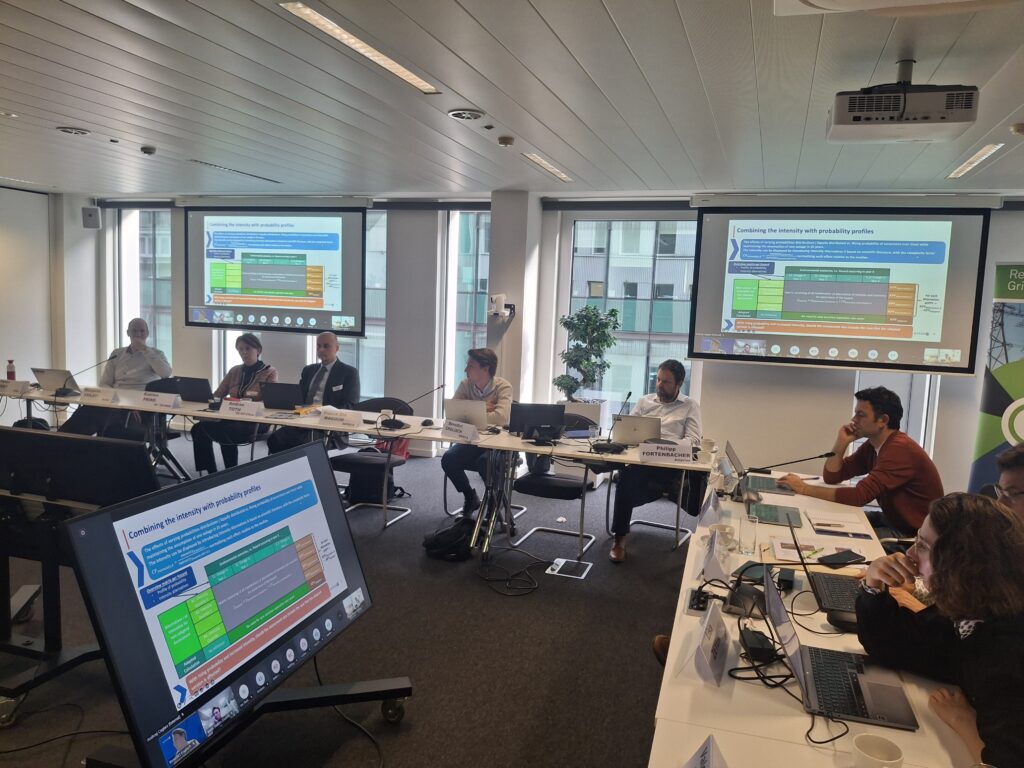
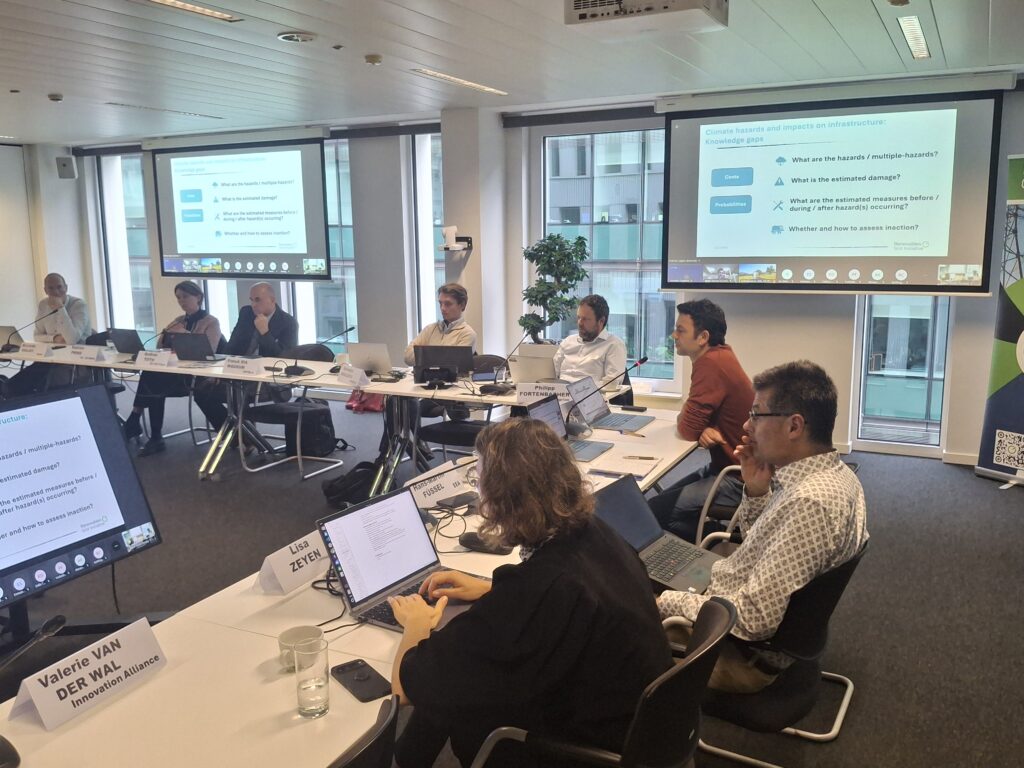
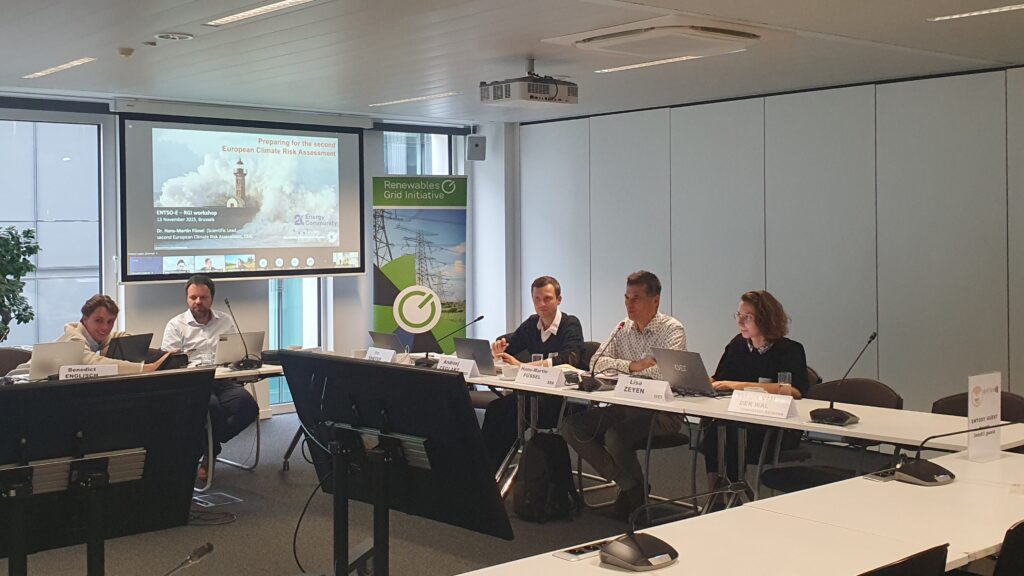
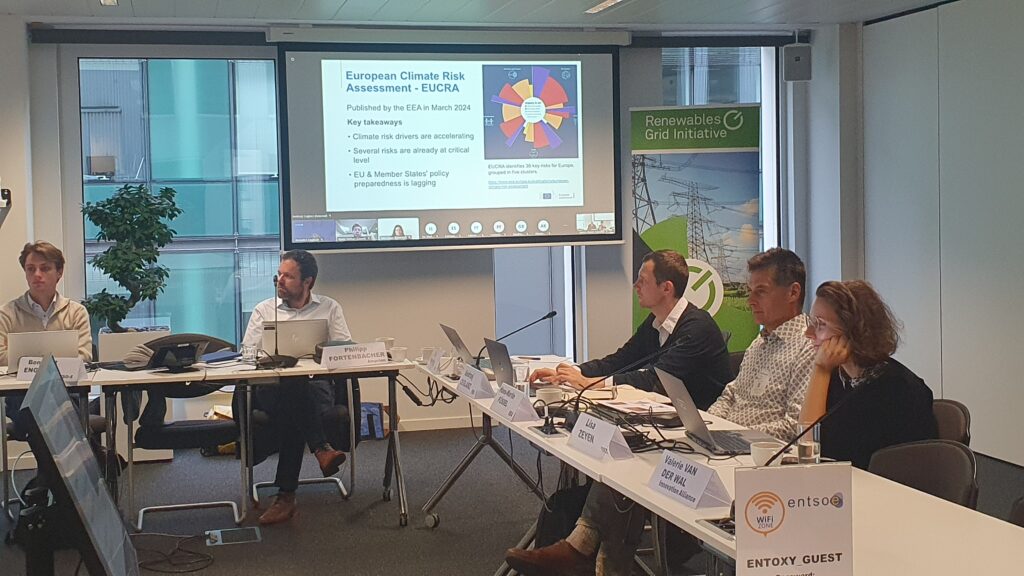
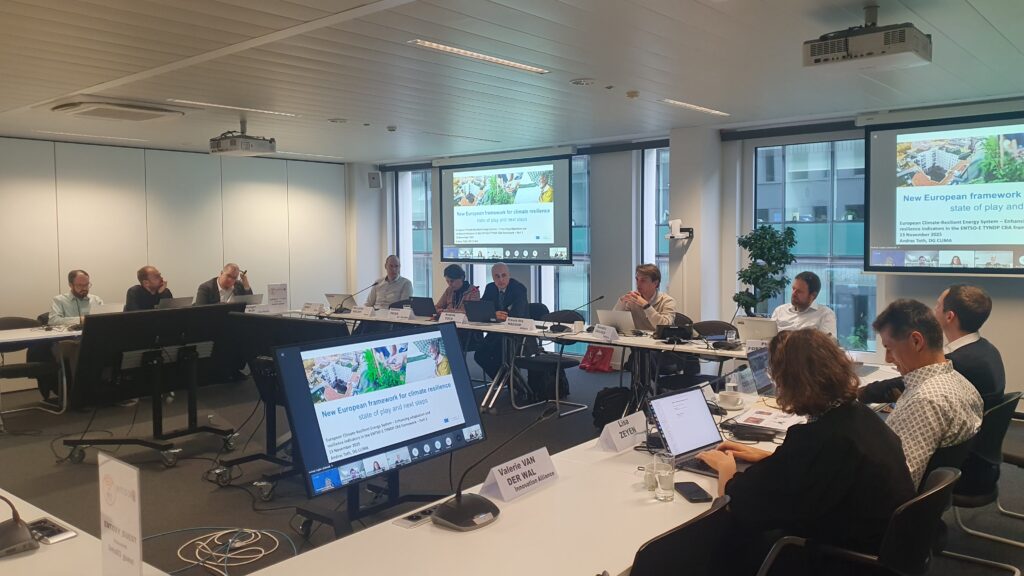
Workshop Presentations
Previous workshops
contact
Dr. Andrzej Ceglarz
andrzej[at]renewables-grid.euDirector – Energy Systems
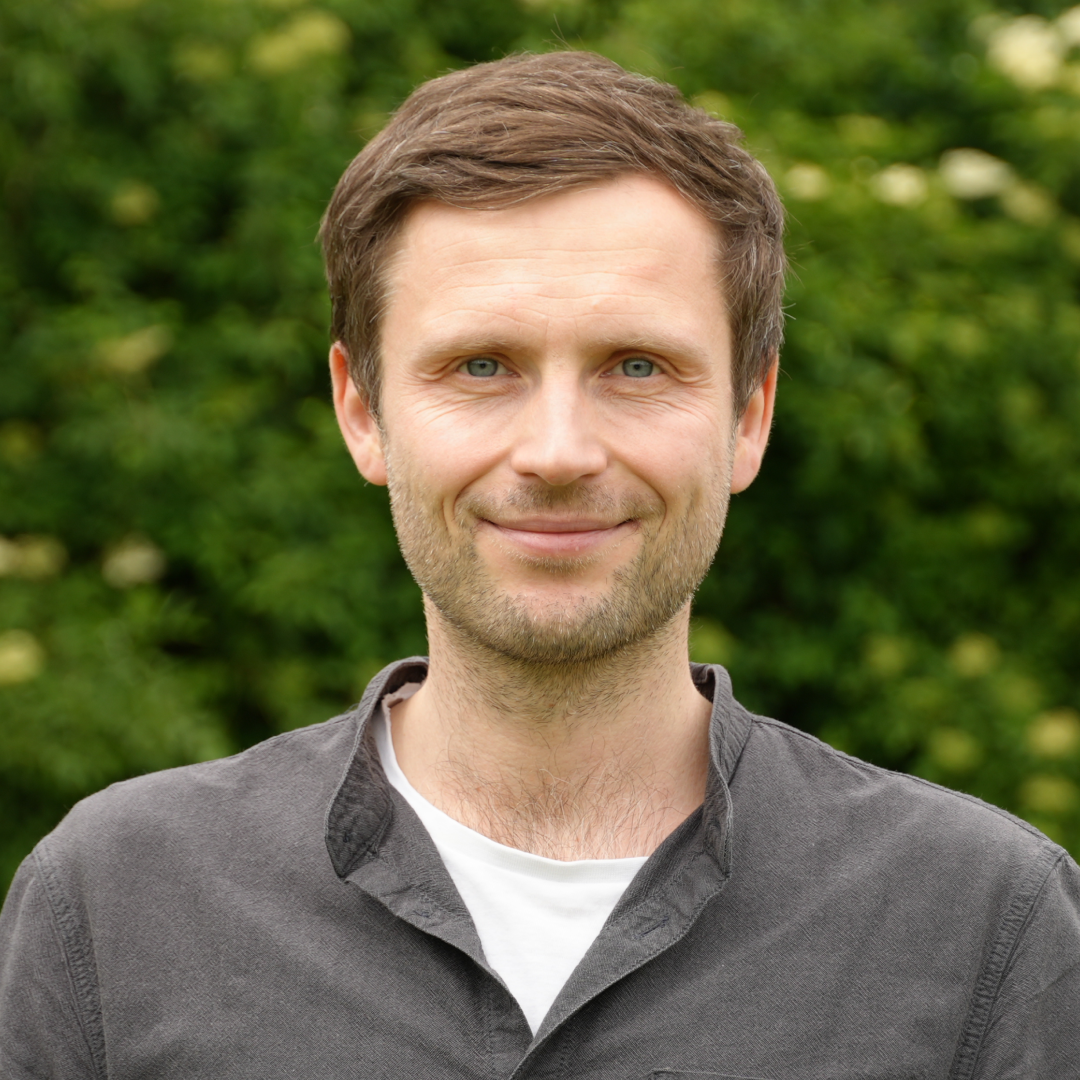
Dr. Ira Shefer
ira[at]renewables-grid.euManager – Energy Systems
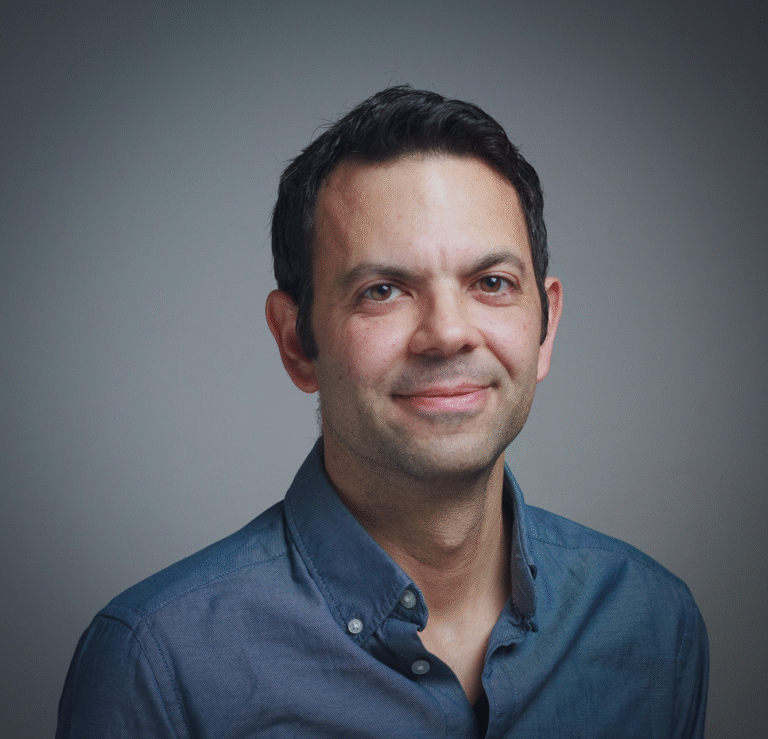
Sara Gaçe
sara[at]renewables-grid.euJunior Consultant




